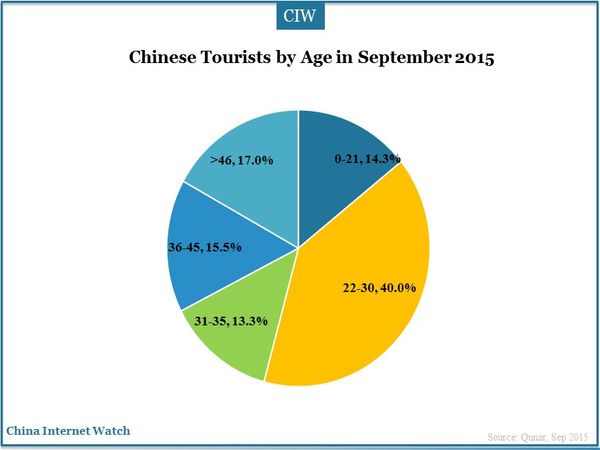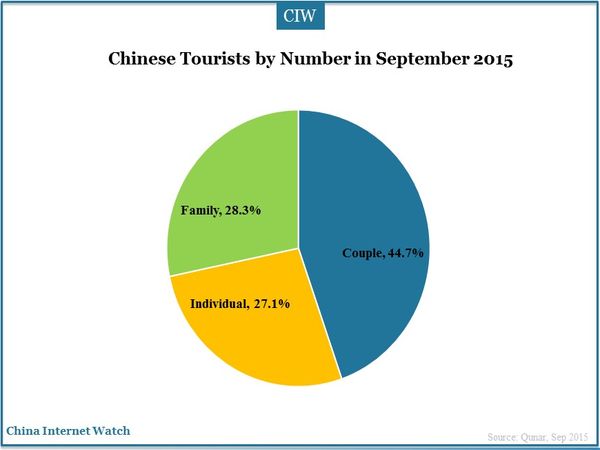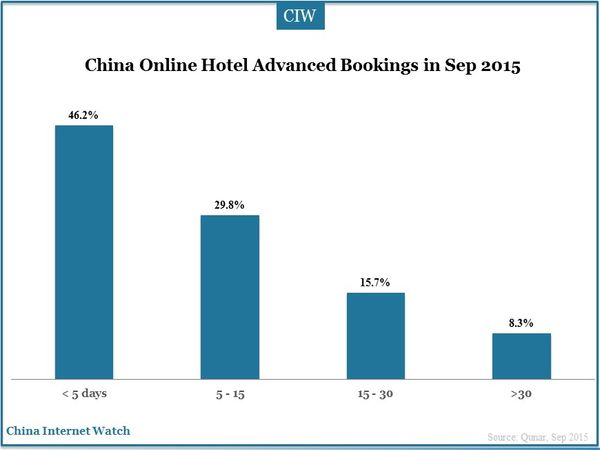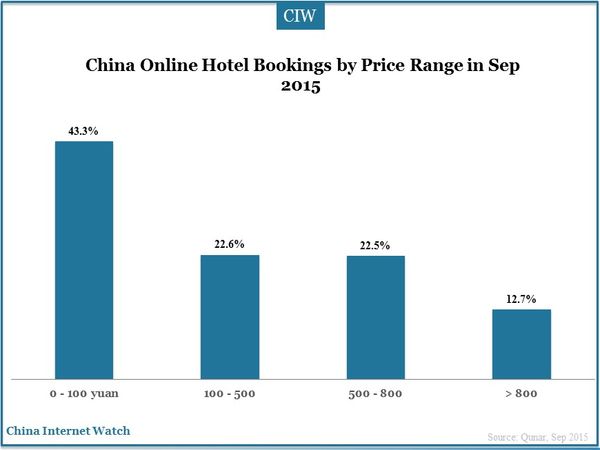
China’s domestic travel frequency has been gradually increasing based on Qunar’s data from January to September 2015.

Travelers under 21 years old account for 14.25% of the total, and most of them are accompanied by their parents during travel. The post-90s is the main driving force of China tourism market, accounting for 39.97% of the total online travel booking users. Consumers aged between 31 and 35 y-o account for the smallest percentage of total travelers. Travelers over the age of 36 get stabilized recovery.

Lovers and couples like traveling most, accounting for 44.66%, followed by the whole family trips and individual trip. The ratio of individual travelers is increasing.

With the improvement of economic development and income level, travel is becoming an important need in people’s living in China. Self-driving trips, budget travel, backpack travel and others are rapidly included in the territory of modern Chinese ways to travel. While most consumers travel as a planned trip, their advanced bookings are made in a relatively short period. 46.21% travelers make bookings 5 days in advance. Only 8.3% travelers may make bookings more than 30 days before the trip.

Mid- and low-end hotels are major preference of consumers. As high as 43.25% will book hotels under 300 yuan, and only 12.67% over 800 yuan. Due to the popularization of Qunar, Ctrip, and other online hotel booking websites, more high-end hotel prices get deep discounts.
Among 32 capital cities in China, Beijing, Shanghai, Chengdu and Guangzhou received most online bookings. Lhasa, Hohhot, Yinchuan and other midwestern residents rank at the bottom, who travel less.
Dali, Kunming, Lijiang, Xishuangbanna, Hong Kong, Jiuzhaigou, Sanya, and Beijing are top 8 inbound destinations; Bangkok, Pattaya, Krabi, Phuket, Bali Jeju and Seoul are top 7 Southeast Asian destinations. Citizens in Beijing, Shanghai, Guangzhou, Chengdu, Hangzhou, Xiamen, Shenzhen, Sanya, Chongqing and Xi’an are most willing to spend money on accommodation during tourism in order to enjoy a more comfortable travel.
Also reads: China to invest $278.7 Billion in Tourism in 2025